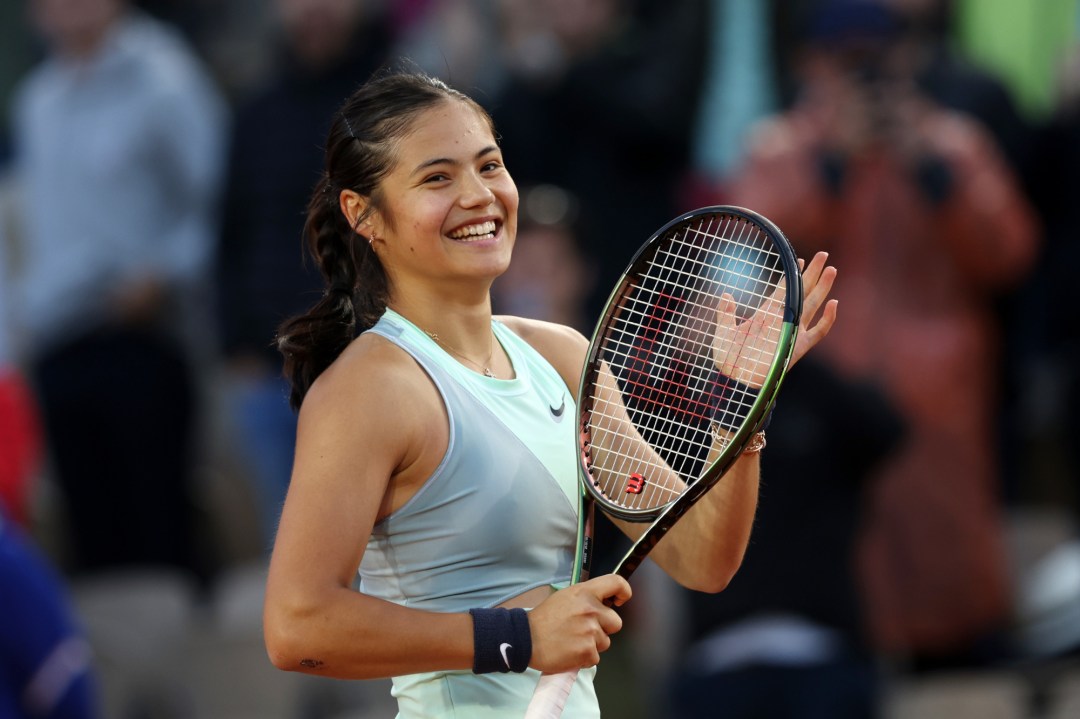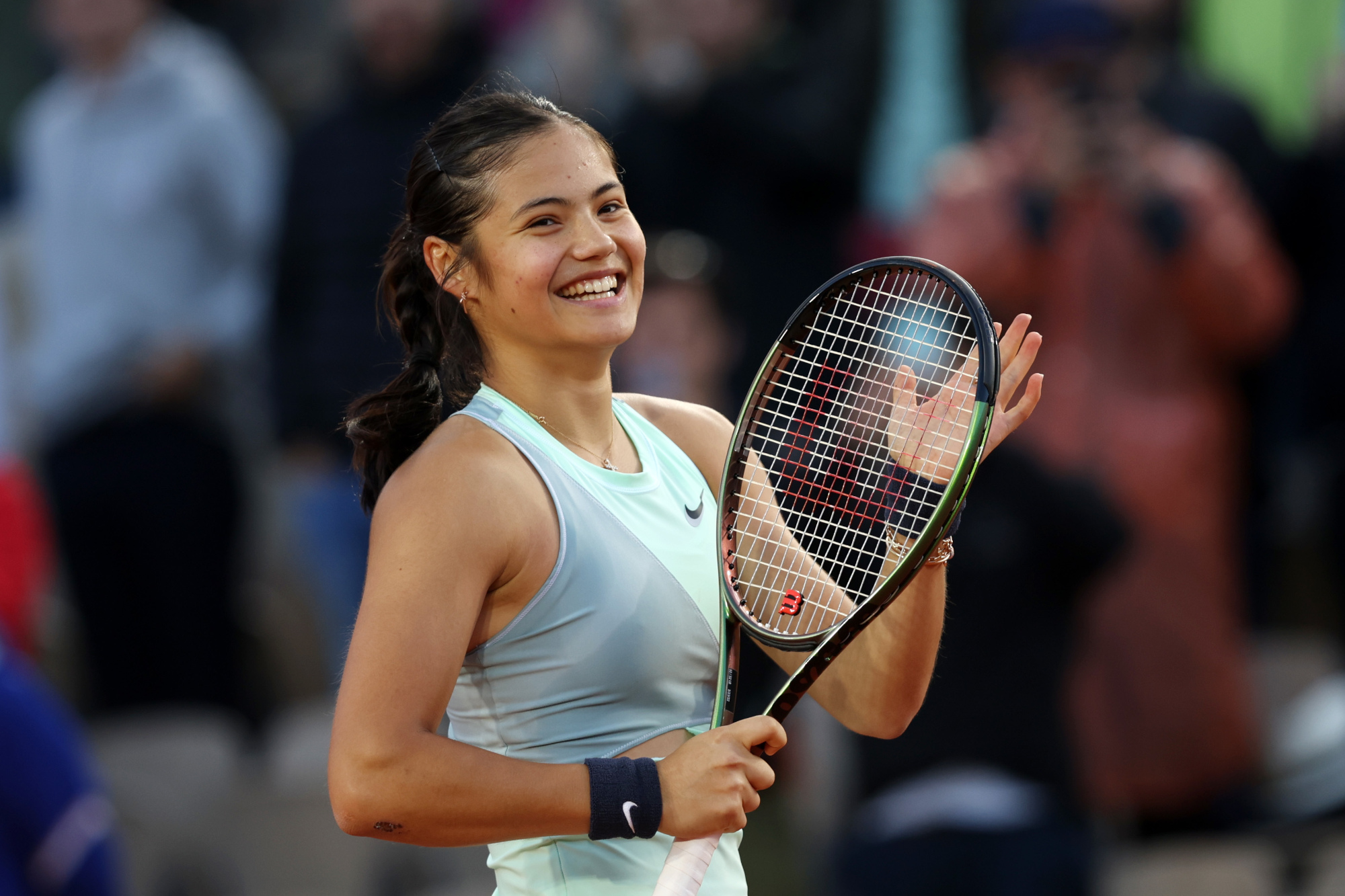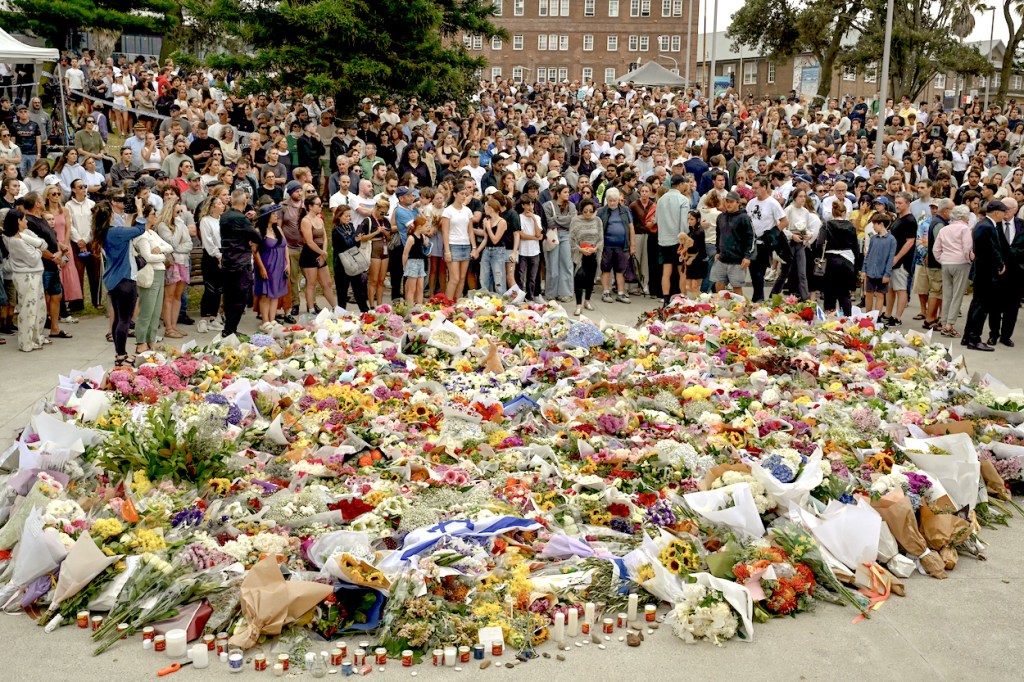No one seriously expected Emma Raducanu to beat Iga Swiatek in her second round match at the French Open. Swiatek, a four-time champion in Paris, is nicknamed the ‘Queen of Clay’, having won 37 of her 39 matches at Roland Garros. Even so, few will have anticipated the scale of the drubbing that took place. Raducanu admitted ‘I have to improve’ after being completely outplayed during the 6-1, 6-2 defeat. One match commentator even went as far as to describe Raducanu as ‘Iga’s personal ball machine’. That is cruel and unfair. Raducanu was simply outclassed by a far better opponent and given a brutal lesson in tennis at the highest level. The Briton was out-thought, outplayed and swiftly dispatched in just one hour and 19 minutes. It was as one-sided as it gets: Raducanu simply had no answers to Swiatek’s obvious superiority on clay. The only consolation for Raducanu is that her opponent has done worse to even better players than her.
Put simply, Raducanu is a middling tennis player, trying her best, which isn’t good enough on most days
‘I think Iga played really well today’, Raducanu said after the match. An understatement, to say the least. Raducanu went on to admit that the result showed the distance she has to go to improve. ‘I definitely think I can improve certain areas of my game to maybe make me feel like I have less holes. I’m just going to try my best to work on that.’
It is deflating to hear such words from a young woman who not that long ago was predicted to be a world-beater but at least it shows that Raducanu appreciates the scale of the task she faces in returning to the summit of the game. Put simply, she is a middling tennis player, trying her best, which isn’t good enough on most days.
There’s no shame in that. The gulf in ability between the Briton and the world’s very best tennis players is all too obvious. She struggles against the top-ranked players, and has lost 11 of her 12 matches against opponents ranked in the top eight. Ten of those defeats were in straight sets. That’s just the reality of where she is right now.
The real problem has always been the unrealistic expectations that surround Raducanu ever since her brilliant 2021 US Open victory as a qualifier at the age of 18. Her feat remains one of the greatest achievements in tennis, and no one can take that away from her. Yet she has struggled to regain those heights ever since and her performances on the tennis tour since then have been disappointing. Her form hasn’t been helped by her numerous and recurring injuries. And she has made a habit of changing coaches frequently. She has also attracted a fair share of criticism for the huge number of sponsorship and advertising deals that came her way after the US Open victory, which some claim were an unwelcome distraction from concentrating on tennis.
The bigger picture (something that her many detractors overlook) is that Raducanu has made some encouraging strides in recent months. She has climbed back into the top 50 after a couple of years plagued by injuries – that is a big achievement in itself. She reached the Miami Open quarter-finals and the last-16 of the Italian Open.
All of this tends to get underplayed because of the sheer weight of expectations placed on her young shoulders. She may not be a world-beater but continues to get the media attention and criticism reserved for superstars. Every setback on the tennis court is greeted with sneers and jeers of ‘I told you so’, tinged with the idea that Raducanu isn’t as good as she thinks she is. This increasingly feels wrong and unfair. There is too much hating for hate’s sake.
She deserves a break and some time out of the limelight to continue improving her game. Losing in Paris is part of that. Raducanu remains one of British tennis’s great success stories. She may well not be a Serena Williams, or indeed an Iga Swiatek, but that doesn’t make her hopeless or useless, just someone who is a level below the top. Her army of critics would do well to remember that and cut her some slack.









Comments